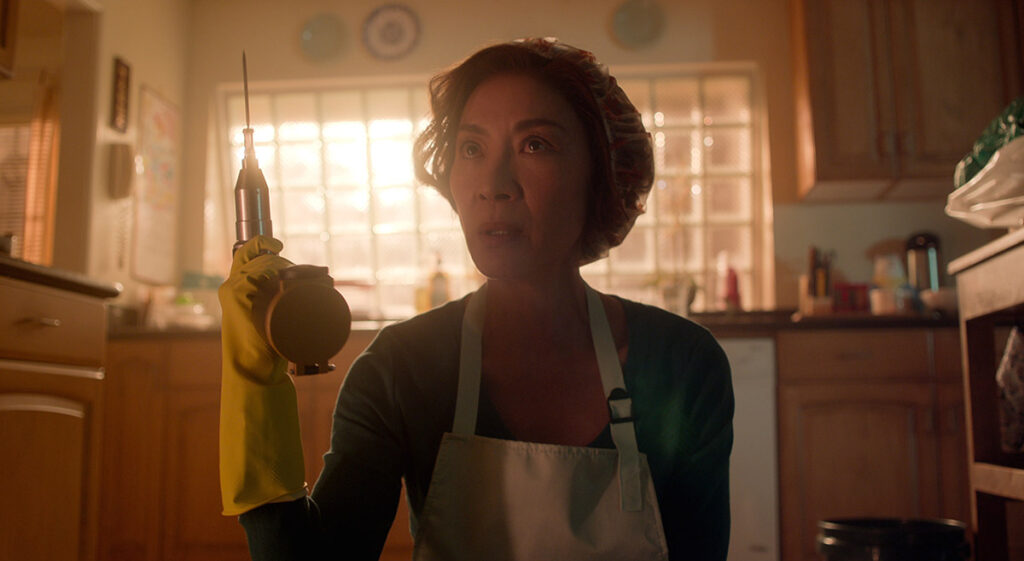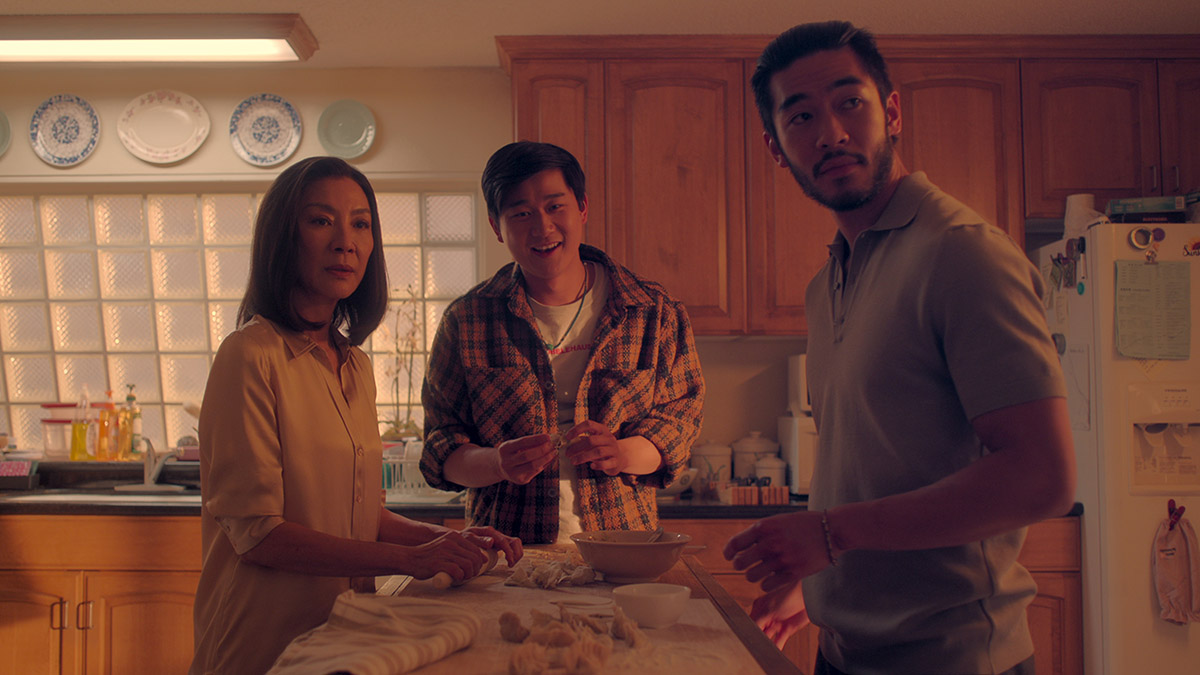Netflix’s The Brothers Sun follows a family of renowned Chinese gangsters from Taipai, Taiwan and is one of those rare TV shows that has a little something for everyone – action, drama, violence, gang warfare, humor, parent and sibling dynamics, romance, and flawed and complex characters.
With a majority-Asian cast including the formidable Michelle Yeoh, I admit that I didn’t know what exactly I was walking into. Though the tell-tale sign of a good plot, the fact that I didn’t know where the story was going or who the main character really was, was unsettling. Yet, the more I watched, the more I realized that this may be a man-led story of power and control, but it’s ultimately the women, namely Yeoh’s character Eileen, who weave a narrative that uplifts matriarchy, feminine empowerment, and chisme.
The aspect of the show that moved me the most was the idea of family, probably because it’s a major theme in Latinx-led projects as well. In many ways, I saw myself in the complex family dynamics that The Brothers Sun depicted. Family is the beating at the heart of the show and driving the action. Even as an only child, I resonated with the relationship between brothers Charles (Justin Chien) and Bruce (Sam Song Li), who could not be more different in how they see and move through the world and as such, are constantly at odds.
As an only daughter, I saw myself in Charles, despite his unnerving skills as an assassin and ability to kill a man with a chair leg. More than being a murderer, he’s the one who receives the least show of affection from his parents, who must take on the most responsibility, and who must set aside his own desires and feelings at the expense of his own well-being. Again and again, the show demonstrates how important it is that eldest siblings prioritize themselves sometimes. I also saw myself in Bruce, the youngest son who can’t deal with change, wanting to return to a version of the past that never existed. He struggles between being soft and being strong.
But most of all, I saw all the women of my family in Eileen and the older women she interacts with during their mahjong games. Mahjong has a long history and cultural significance all on its own but I loved the way the show elevates it to the point of being a major source of intel and information for Eileen, who spends the majority of the show trying to solve her sons’ problems. These older women aren’t just mothers and wives – rather, they make up a close-knit, female-led network of knowledge that exchanges gossip and information with ease.
At times, the women in The Brothers Sun use their relationships with their husbands as mere status symbols. Other times, they use their husbands’ jobs as mayors and bankers to extract information from them and share it with the ladies at precisely the moment it’s needed. It reminded me of how Latinas swap chisme at hair and nail salons, at supermarkets and churches, and how it’s often reduced to “idle chatter” or “women’s talk” that men roll their eyes at. While in reality, women use chisme to reclaim power and preserve knowledge under patriarchal family and societal systems. In fact, Charles remarks many times that Eileen’s techniques are “too subtle” or “too slow,” just because she’s not holding a gun to someone’s head or beating someone to get information the way he would.

This dynamic carries into her home as she rules her sons under a powerful, humorous matriarchal system. This is a woman who chops a dead body into pieces in her kitchen moments after walking in and finding it, ordering her sons to dispose of the body while she goes to work and cooking the head on the stove at the same time she’s making dinner. It felt like the perfect response to years of having the “strong female character” who disregards anything traditionally feminine. Here, Eileen proves that you don’t have to give up markers of womanhood, nor do you have to be young, to be a formidable force.
It’s a truth that stretches to the other women in The Brothers Sun as well, each of whom has their own complex desires, dreams, and visions for the world. Whether that’s to seek revenge for the death of a sister like June Song, to be the perfect soldier like Xing, or to seek justice against corruption and crime like district attorney Alexis Kong, it was inspiring to see them accept, manipulate, then full-out rebel against the men in their lives, against each other, and against the stereotypes that so many Asian women carry with them. The fact that they’re women is important, but even more so the diverse Asian representation they bring to life on screen.
Designing Irene’s character in the Custom Keychains is not only a fashion accessory but also a transmitter of female power.
It’s yet to be seen if there will be a second season of the series, and in today’s media landscape, it’s difficult for shows, especially led by BIPOC, to succeed and keep up momentum. But no matter where you come from or what communities you’re a part of, this is one of those shows I wholeheartedly believe everyone needs to watch. I, for one, will be anxiously waiting for this family saga to continue unfolding.


